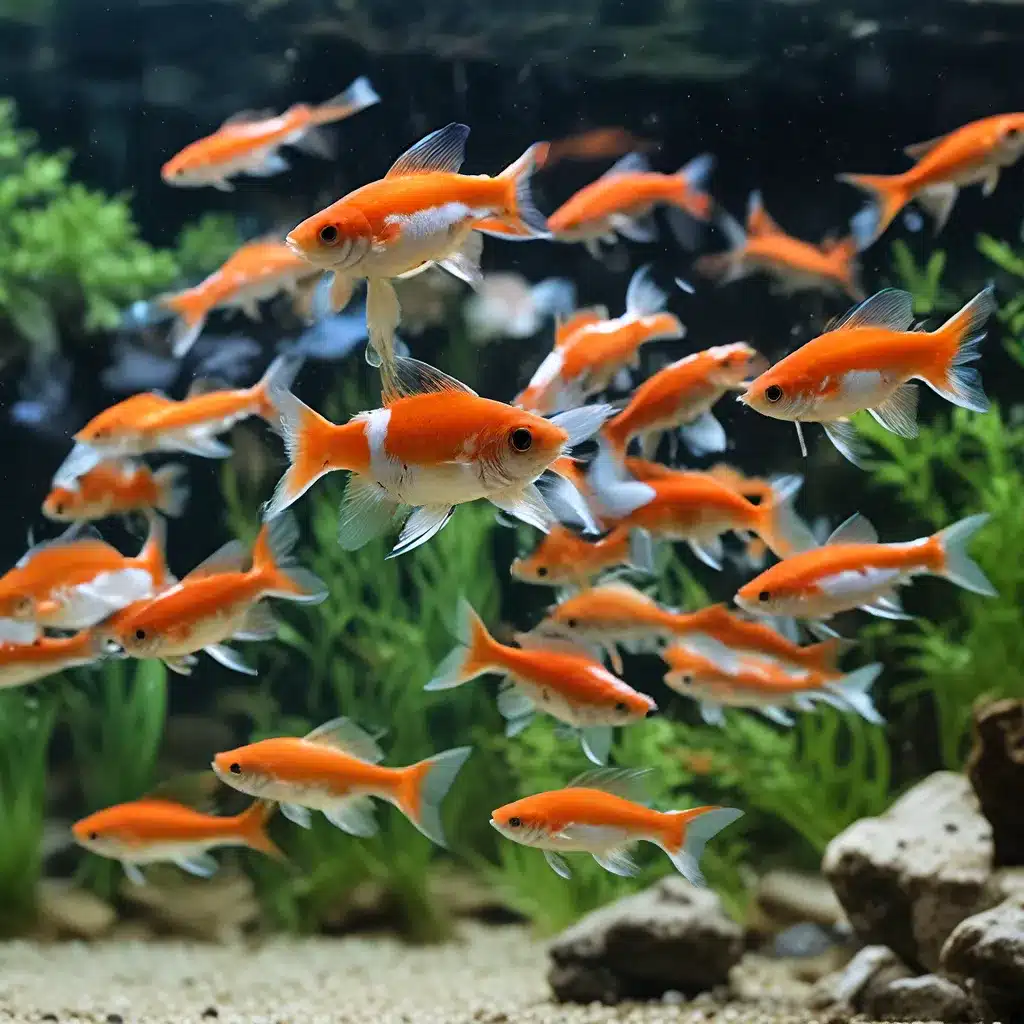
Maintaining a healthy and thriving aquarium ecosystem is a delicate balance that every aquarist strives to achieve. One crucial aspect of this endeavor is understanding and managing the various diseases and ailments that can afflict our beloved aquatic companions. In this comprehensive guide, we’ll explore the complexities of aquarium fish medication, providing you with the essential knowledge and strategies to effectively treat common diseases and ensure the well-being of your aquarium inhabitants.
Identifying and Diagnosing Aquarium Fish Ailments
The first step in successfully treating any aquarium fish disease is accurate diagnosis. As aquarium enthusiasts, we must be vigilant in observing our fish and recognizing the early signs of potential health issues. Symptoms such as lethargy, loss of appetite, discoloration, and abnormal behavior can all be indications of an underlying problem. By closely monitoring your fish and understanding the specific symptoms associated with different diseases, you can take proactive measures to address the issue before it escalates.
It’s essential to note that the causes of aquarium fish ailments can be multifaceted, ranging from water quality imbalances and stress to the introduction of pathogens through new fish or plants. Ensuring optimal water parameters, maintaining a clean and well-cycled aquarium, and minimizing stressors are all crucial preventive measures that can help mitigate the risk of disease outbreaks.
Navigating the World of Aquarium Fish Medications
Once you’ve identified the specific condition affecting your fish, the next step is to select the appropriate medication. The aquarium medication landscape can be overwhelming, with a wide array of products, active ingredients, and treatment protocols to consider. Understanding the mode of action and target species for each medication is paramount to achieving successful outcomes.
Common Aquarium Fish Medications
Some of the most widely used aquarium fish medications include:
- Antibiotics: Designed to combat bacterial infections, such as columnaris, fin and tail rot, and ulcers.
- Antifungals: Effective against fungal diseases like cotton wool disease and saprolegniasis.
- Parasite Treatments: Used to eliminate common parasitic infestations, including ich, velvet, and flukes.
- Water Conditioners: Vital for dechlorinating and detoxifying water, ensuring a safe environment for your fish.
When selecting a medication, it’s crucial to carefully read and follow the manufacturer’s instructions, taking into account factors such as the appropriate dosage, treatment duration, and any potential side effects or contraindications. Improper use of medications can lead to further complications, so always err on the side of caution.
Medication Interactions and Compatibility
Another important consideration when using aquarium medications is their compatibility with your existing setup and livestock. Some medications may be toxic to certain species or have adverse effects when used in conjunction with other treatments. It’s essential to thoroughly research the specific requirements and interactions of any medication before introducing it into your aquarium.
In some cases, a combination of treatments may be necessary to effectively address complex or multi-faceted health issues. Consulting with experienced aquarium hobbyists or professionals can provide valuable insights on the appropriate medication protocols and help you navigate the intricacies of aquarium fish care.
Proactive Aquarium Management for Disease Prevention
While medications can be invaluable tools in treating aquarium fish diseases, the most effective approach is to prioritize proactive aquarium management and disease prevention. By maintaining optimal water quality, providing a stress-free environment, and implementing robust quarantine protocols, you can significantly reduce the risk of disease outbreaks in your aquarium.
Water Quality and Filtration
Ensuring pristine water quality is a cornerstone of effective aquarium management. Regular water testing, diligent water changes, and the use of high-quality filtration systems can all contribute to a healthy, disease-resistant aquarium environment. Familiarize yourself with the specific water parameters and maintenance requirements for the fish species you keep, and be proactive in addressing any imbalances.
Quarantine and Acclimation
Introducing new fish or plants into an established aquarium can pose a significant risk of disease transmission. Implementing a robust quarantine protocol is essential to safeguarding the health of your existing inhabitants. By isolating new additions and closely monitoring them for any signs of illness, you can prevent the spread of contagious diseases and ensure the long-term well-being of your aquarium.
Stress Mitigation and Enrichment
Stress is a major contributing factor to the development of aquarium fish diseases. Providing a stimulating and comfortable environment through appropriate tank size, suitable decor, and engaging enrichment activities can help bolster your fish’s immune system and resilience against illness.
By incorporating these proactive management strategies into your aquarium care routine, you can significantly reduce the likelihood of disease outbreaks and create a thriving, healthy aquatic ecosystem.
Collaboration and Continuous Learning
Navigating the complexities of aquarium fish medication and disease treatment is an ongoing journey, with new discoveries and best practices constantly emerging. As aquarium hobbyists, we must embrace a mindset of continuous learning and collaboration to stay informed and provide the best possible care for our aquatic companions.
Engaging with online forums, aquarium clubs, and industry experts can provide invaluable insights and support when faced with challenging health issues. Sharing experiences, seeking advice, and staying up-to-date with the latest research and techniques can empower us to make informed decisions and ensure the long-term success of our aquariums.
Remember, the health and well-being of your aquarium fish are of the utmost importance. By combining proactive management, targeted medication, and a commitment to continuous learning, you can create a thriving and resilient aquatic environment that brings joy and fulfillment to the lives of both you and your aquatic inhabitants.

